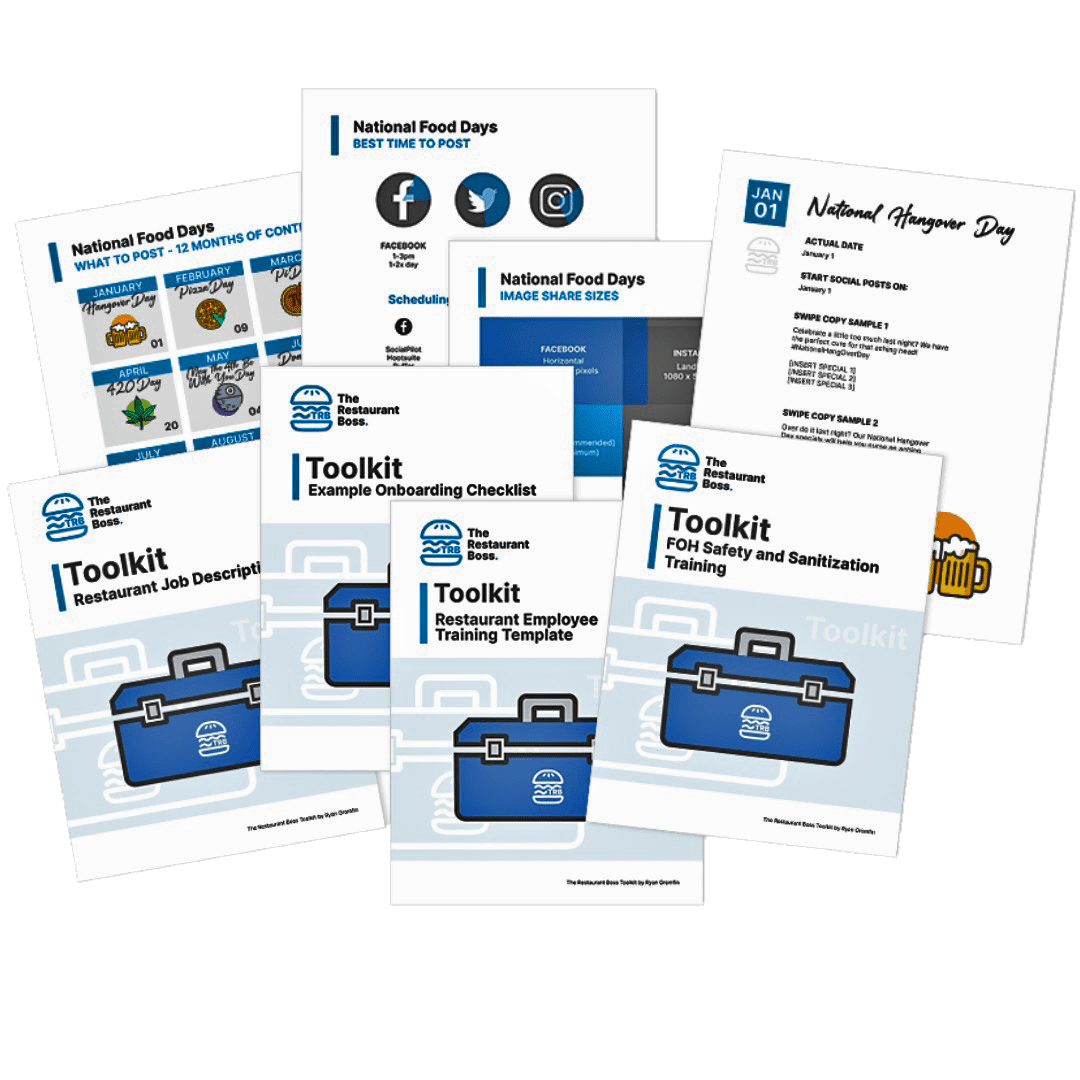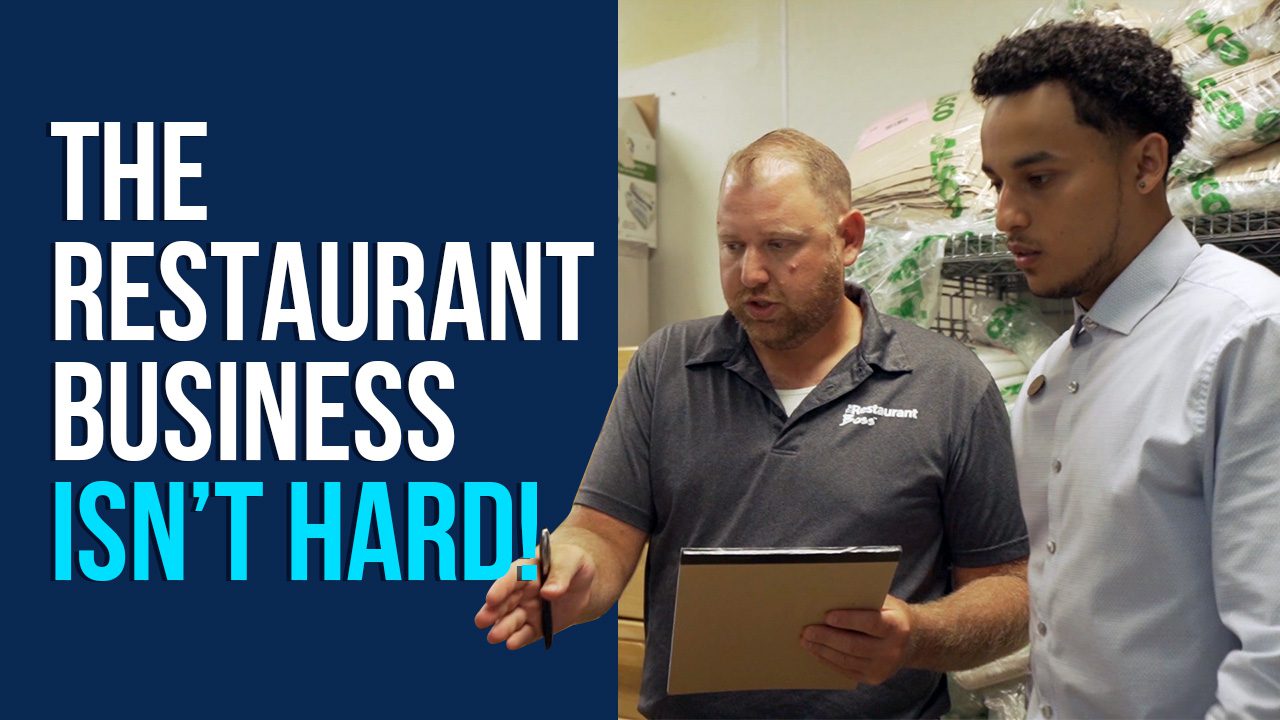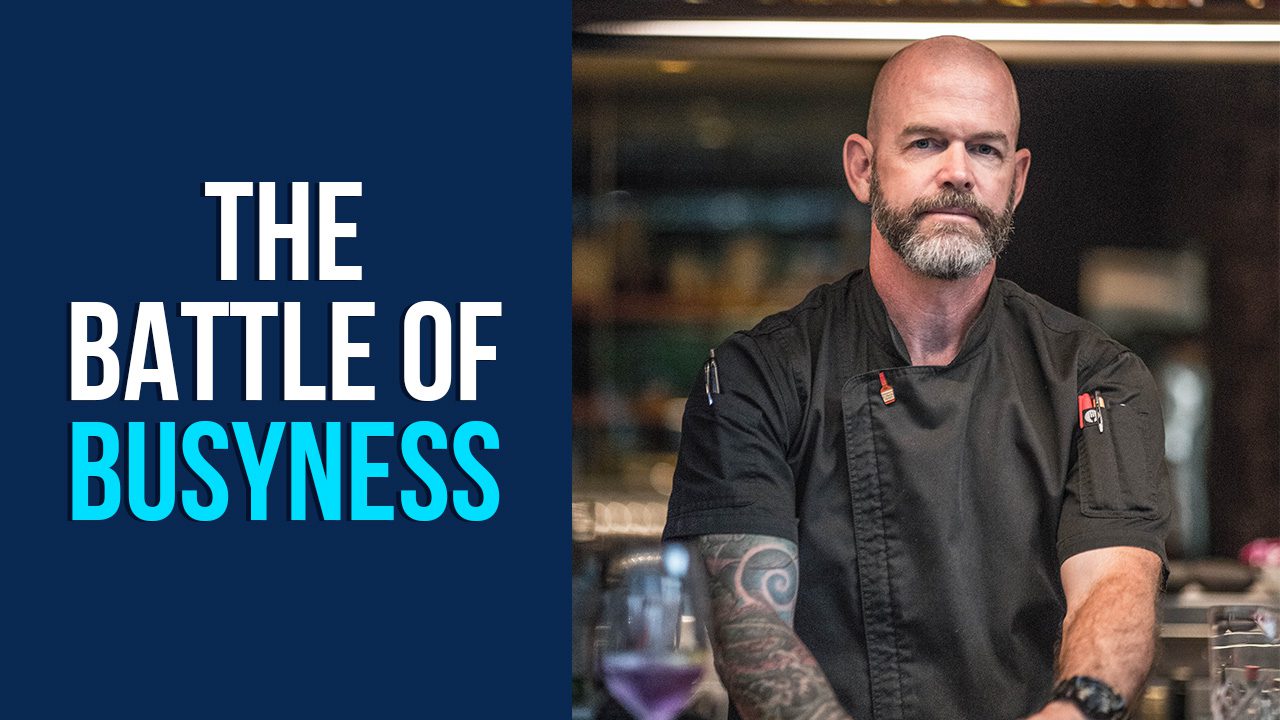The Importance of Cleanliness In Your Restaurant
Today, I am sharing some important rules for keeping a very clean and sanitary kitchen. Did you know there is a difference and that keeping your kitchen *both* clean and sanitary will have a huge impact on your restaurant’s success?
PODCAST
Read the Video Transcript by Clicking Here...
“Cleanliness is next to godliness.” “A good cook is a clean cook!”
These are things my mom always used to tell me when I was cooking at home before I became a professional chef. They are equally, if not more, important than ever in your restaurant’s kitchen. It says a lot about the success in your restaurant.
I’m going to share with you some of my most important rules that you must maintain to keep a very clean kitchen, which I believe has a huge impact on the success of your restaurant. Clients hire me to consult with them on their restaurants, and I will not eat in their restaurants because, even though they think their kitchens are clean, they are absolutely disgusting. Most people think their restaurant’s kitchen is clean, but it’s not.
I would highly suggest you hire a local health consultant or kitchen cleanliness consultant. You can google a consultant in your area or find someone who teaches health safety courses. Hire them to do an audit in your kitchen, because what you don’t know could kill someone. Believe me when I say, this is pretty serious stuff.
4 To Look For in Kitchen Cleanliness:
Here are the four things that I first look at when I walk into any kitchen:
- Cleanliness and sanitation. A clean kitchen is free of visible debris and a sanitary kitchen is free of 99.9% of bacteria. They are two completely different things. You can have in an absolutely clean kitchen that is completely riddled with bacteria. The first thing is just general cleanliness – are things clean and organized, in the right place, and labeled properly.
- Storage. Are you storing food properly? If I go into a walk-in and see rotting vegetables, meat stored above vegetables, or raw proteins stored above cooked proteins, I’m not eating there ever because that’s disgusting. Raw chicken juice dripping on vegetables or lettuce, or anything like that, is absolutely terrible and will get you in big trouble.
- Time and temperature. How well are you maintaining your time and temperatures? It’s different in every state and in every country so I’m not going to go into the specific details. If you are not intimately familiar with something called the Temperature Danger Zone, please look that up and learn it. It’s probably the most important thing ever in a kitchen as far as bacterial growth. Time and temperature is food staying out on a steam line at the right temperatures and for the right amount of time, and is food being cooked and cooled properly.
- Sanitation Buckets. Those red buckets with clean sanitizer (Mikro Quat is what it’s usually called or what most places use). I don’t like bleach and would be happy to answer any comments below on why I don’t recommend bleach. Have Mikro Quat in a red bucket with a clean rag that you could dip into that bucket and then wipe off your station between jobs. You could also wipe off a knife between jobs as well. Since we’re talking about the difference between sanitary and clean conditions, you could wipe off your cutting board with a towel and it’s “clean” – free of visible debris. But it’s not sanitary and free from bacteria that transfer from product to product. This is why you need to be using those red sanitizer buckets.
Summing it up:
There are a million other things that I’m going to look for in a kitchen, but these are the four on my immediate punch list.
- Is the kitchen clean and generally organized?
- Is food stored properly?
- How well is your kitchen adhering to proper time and temperature?
- Are you using a sanitizer bucket on every single station and are your cooks using them between projects?
You’ll notice I didn’t even mention hand-washing. That the absolute first thing I notice. It’s so important that shouldn’t even be on a list. I walk into kitchens a lot and see cooks that are not washing their hands. I see hand stations that don’t have scrub brushes, towels, or (gasp!) soap. I introduce myself to the cooks and ask them if they washed their hands today. They point to the sink with no soap and say they must have just run out of it, which is funny (and so not true).
I hope you liked today’s video and I hope you learned something from it. I look forward to sharing another one just like this with you next week.
Read More
Running a Restaurant Isn't Hard
The #1 complaint in restaurant management is poor employee performance. If you’re not following this simple 5-step plan to train your employees, you’re never going to get the results that you want from them …ㅤㅤㅤ
Busy Is Killing Your Restaurant
Are you busy? There are things you’re doing all day, every day in your restaurant and it’s those things that are going to put you out of business. There are 4 things you can do today to battle the busy inside your restaurant …
Follow For More:







